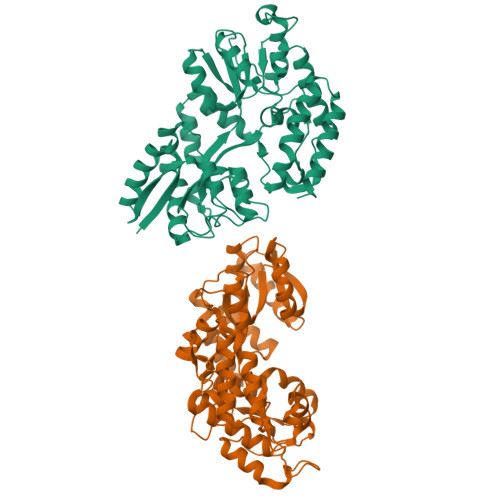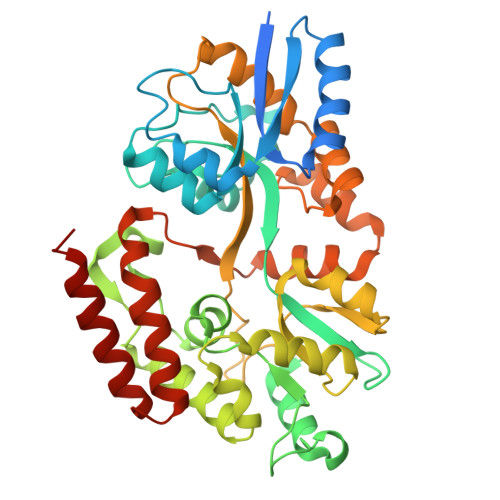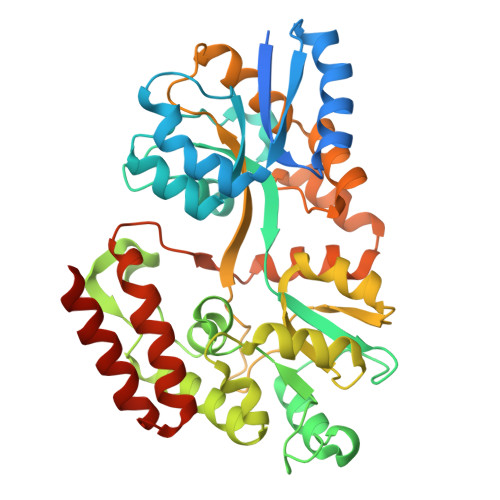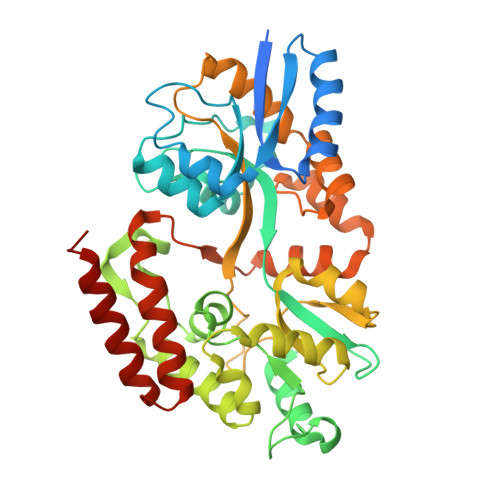The Molecular Basis of Glycogen Breakdown and Transport in Streptococcus Pneumoniae.
Abbott, D.W., Higgins, M.A., Hyrnuik, S., Pluvinage, B., Lammerts Van Bueren, A., Boraston, A.B.(2010) Mol Microbiol 77: 183
- PubMed: 20497336
- DOI: https://doi.org/10.1111/j.1365-2958.2010.07199.x
- Primary Citation of Related Structures:
2XD2, 2XD3 - PubMed Abstract:
The genome of Streptococcus pneumoniae strains, as typified by the TIGR4 strain, contain several genes encoding proteins putatively involved in alpha-glucan degradation, modification and synthesis. The extracellular components comprise an ATP binding cassette-transporter with its solute binding protein, MalX, and the hydrolytic enzyme SpuA. We show that of the commonly occurring exogenous alpha-glucans, S. pneumoniae TIGR4 is only able to grow on glycogen in a MalX- and SpuA-dependent manner. SpuA is able to degrade glycogen into a ladder of alpha-1,4-glucooligosaccharides while the high-affinity interaction (K(a) approximately 10(6) M(-1)) of MalX with maltooligosaccharides plays a key role in promoting the selective uptake of the glycogen degradation products that are produced by SpuA. The X-ray crystallographic analyses of apo- and complexed MalX illuminate the protein's specificity for the degradation products of glycogen and its striking ability to recognize the helical structure of the ligand. Overall, the results of this work provide new structural and functional insight into streptococcal alpha-glucan metabolism while supplying biochemical support for the hypothesis that the substrate of the S. pneumoniaealpha-glucan metabolizing machinery is glycogen, which in a human host is abundant in lung epithelial cells, a common target for invasive S. pneumoniae.
Organizational Affiliation:
Biochemistry and Microbiology, University of Victoria, PO Box 3055 STN CSC, Victoria, BC, Canada V8W 3P6.



















